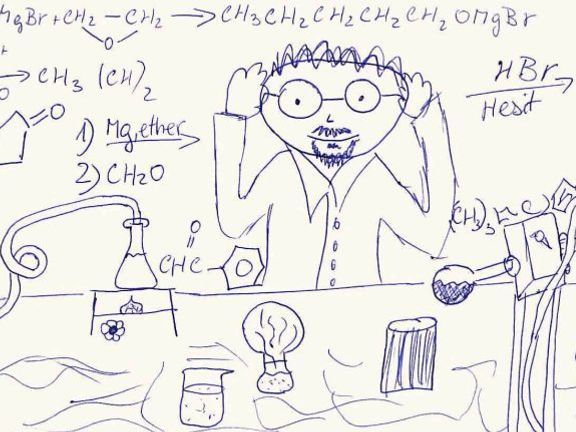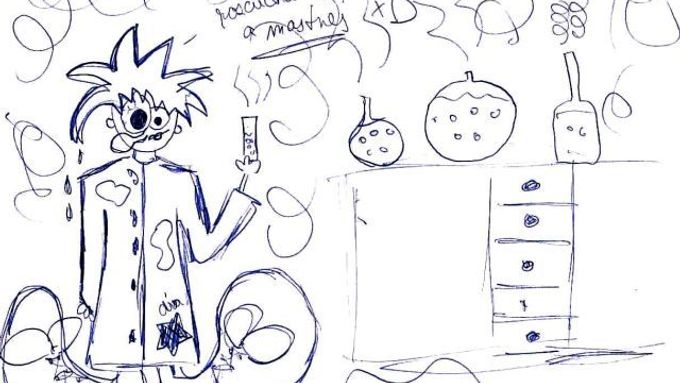Prague - Intelligent and hardworking, but also unkempt, anti-social and whacky. That is precisely the image of a scientist prevailing among students of elementary and high schools in the Czech Republic.
A recent poll organized by the Palacký University´s Faculty of Natural Sciences in Olomouc showed that Czech students do not think highly of scientists.
"The main reason why we started this poll is the decreasing interest in natural sciences, while the students are increasingly interested in humanities and arts. And then, a fairly large number of natural science graduates do not stick with their subject either. So we wanted to know why," explained sociologist Daniel Topinka.
Interestingly, the majority of 1,200 interviewed students all agreed that natural sciences are an insteresting subject but hard to study.
Benefits of natural sciences
The Palacký University claims it will try to change this "out of time" image of a scientist.
Sociologist Topinka is leading a project called "MedVěd" (short for Medializace vědy, or a science promotion in media; in Czech, the word medvěd also means a bear) to raise interest in natural sciences among students and head-hunt them as early as in a high school age.
"It is a very special research. We have used a unique method of group sessions with high-school students along with a checklist of various interview methods," added Mr. Topinka.
Every seven out of ten students interviewed actually showed interest in studying natural sciences and almost forty per cent would want to study the subject.
Surprisingly, almost half of graduating high school students would go for natural sciences as well.
Different reality
But the general reality seems to be different. Palacký University's Faculty of Natural Sciences in Olomouc, received almost 3,000 applications last year.

The number of officially accepted applicants was about 2,200. But less than 1,400 really started to attend.
"It is usually their second, likely even third choice of study. Students are not sure what would follow in their professional career after graduation. It is much easier, rather safer, with an education in Humanities or Arts in their opinion, which more often than not becomes the reality of life," stated the Faculty dean Juraj Ševčík.
Sociologist Topinka confirms this. "The students usually don't know how they would use for example mathematics in their future profession."
Surreal life of a scientist
Yet another deterrent might also be students´ view of a scientist that is not very positive, as the survey indicated.
"Students perceive scientists as foolish or unattractive people, trapped in their environment much like lab rats. Their social status and popularity is low, as well as their lifestyle - seemingly quite surreal to the one we are more familiar and comfortable with," explianed Mr. Topinka.
"The science is more profitable than it may appear. If you are successful in what you are doing you can reach a high level of financial success, while enjoying your work as a hobby too. We could compare the science with business, actually," the faculty dean Ševčík puts a brave face on the matter.
It is the University's plan to establish an information centre that would attempt to give unbiased information about natural sciences to students.
On top of that, they will try to invite the interest of people in special classes, the main goal of which will be to popularize natural sciences.

